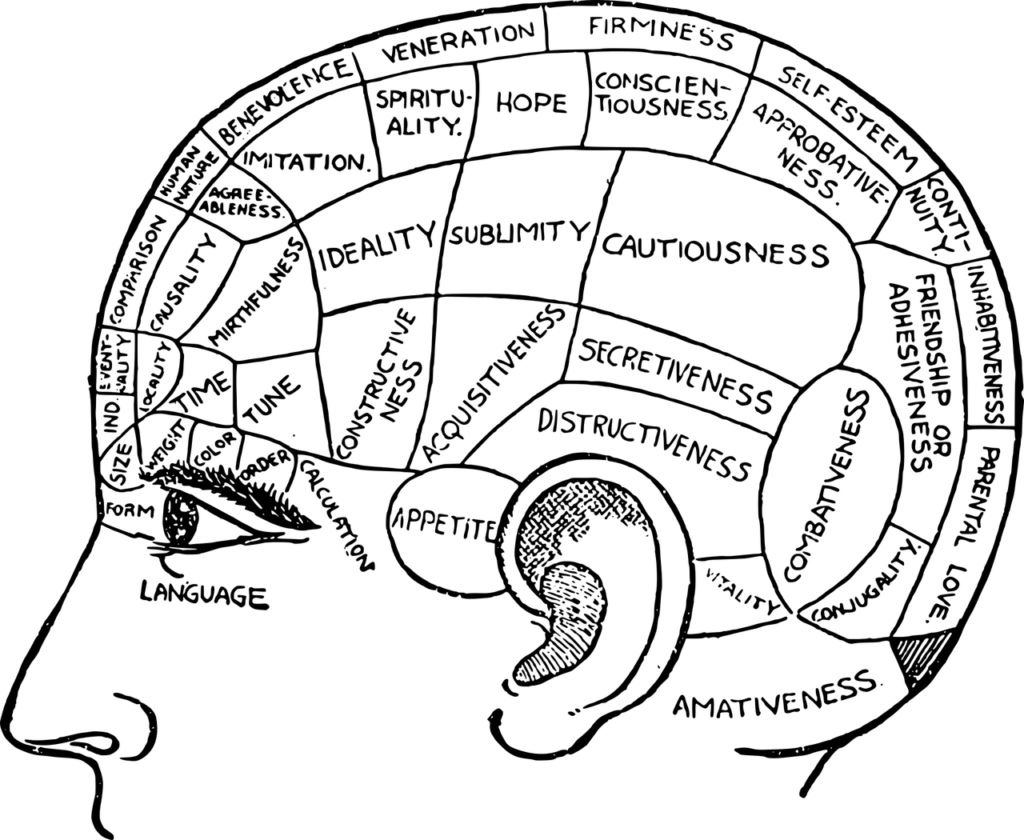- Calls to this hotline are currently being directed to Within Health, Fay or Eating Disorder Solutions
- Representatives are standing by 24/7 to help answer your questions
- All calls are confidential and HIPAA compliant
- There is no obligation or cost to call
- Eating Disorder Hope does not receive any commissions or fees dependent upon which provider you select
- Additional treatment providers are located on our directory or samhsa.gov
Practical Neurobiology for Clinicians: Eating Disorder Diagnoses & Neurology – Part IV

As we learn more about brain traits that predispose people to eating disorders, people want to know, “what traits make my brain more at risk?” Unfortunately, there is little good science focused on what kind of brain or brain traits put an individual at risk for an eating disorder.
This is not due to there being no great scientists, but, instead, is a result of limited time, people, and resources. The scope of research that other illnesses have takes incredible numbers of people and an incredible amount of money.
However, there have been studies where they look at individuals that seem as similar as possible (i.e., age, educational level, socioeconomic status, background, race). The only difference being that one is diagnosed with anorexia or bulimia and the other is not.
These studies often begin looking at what the individual was like, what genetics traits they had, before their first ever diet or binge-purge episode.
Brain Traits of Anorexia
In anorexia, a few studies that have done this have found that a huge predisposed trait was negative emotionality and low self-esteem.
Many of these individuals see the world as a dangerous, overwhelming place, they don’t see themselves as the rest of the world does, they don’t consider themselves friendly, pretty, or capable, and they don’t see their body the same way as the world tends to.
Some other pre-disposing brain traits that have been found for anorexia include perfectionism, anxiety, inhibition or avoidance, picky eating, altered interoceptive awareness (the internal sense of your body), OCD symptoms, high levels of reward dependence or low reward reactivity, and harm-avoidance.
As an example, let’s consider an individual who wants everything done very specifically. They are anxious, but, may not recognize themselves as anxious. When they do get anxious, even before they went on their first diet, they would tend to go away or withdraw or avoid whatever made them feel anxious or overwhelmed.
This individual is a picky eater, which often occurs because food may cause their stomach to hurt or they don’t find joy or reward in it, so they tend to avoid certain foods. Their interoceptive awareness is altered so how they interpret their stomach, or their internal body seems to be off.
All of these things combine to an individual who experiences anxiety, likely in their stomach, but doesn’t recognize it, when they eat, they feel worse and don’t get the reward from their food.
As such, they develop an OCD-like pattern because something feels out of order and they don’t know how to correct it. Therefore, they create rules to avoid food, which makes them feel better.
This individual also has a high level of reward dependence, meaning they want to make straight A’s or be valedictorian or go to Ivy League schools. They stress themselves out doing so, but, also have that low reward reactivity, so, even when they succeed, it doesn’t help them to feel better.
Knowing these traits can help in treatment. For example, individuals can create Recovery Plans that work with their brain traits, such as using the knowledge that their spirituality or connection with people provides them with meaning or feelings of reward, so, focusing on that more than the academic achievements they previously fixated.
It also helps clinicians understand these clients more. Sometimes, those giving treatment or loved ones become frustrated because star, rewards, phones, and cars don’t work as a motivator for recovery. However, knowing that these individuals have low reward reactivity gives insight as to why that is the case and how to proceed differently.
It also helps to understand that these individuals punishment systems tend to be overly sensitive.
As such, giving them a negative comment will result in them doing anything they can to avoid it. If you ask most anorexics why they get straight A’s for school and give them the choice of “it makes me feel good” or “I’m scared to death of getting a B because it’ll mean I’m an idiot,” most of them will choose the second option.
A bad grade or a criticism reinforces their low self-esteem. Understanding how their brain works that way can help individuals not only negotiate how this impacts their eating but also their relationships and lives as a whole.
Brain Traits of Bulimia
Looking at the big picture of individuals with bulimia, they often feel anxious just as the individual with anorexia does. They often try to diet because they think that if they lose weight or look different, they will feel better about themselves.
However, they aren’t wired in the same way as an individual with anorexia, making it hard for them to avoid food. These individuals do experience a lot of reward from food. Therefore, they will get cravings when they don’t eat and will also experience reward when they binge as well as when they purge.
 Bulimia traits are similar to anorexia traits in that individuals do tend to be pessimistic or have negative emotionality as well as low self-esteem.
Bulimia traits are similar to anorexia traits in that individuals do tend to be pessimistic or have negative emotionality as well as low self-esteem.
They tend to be anxious or fearful and, when they feel that, will do whatever is necessary to feel better such as experimenting with drugs or sex or becoming angry or lashing out. This is particularly true because their reward system is so sensitive and their punishment system is less sensitive.
When they may engage in risky behaviors, their brain releases dopamine which makes their brain feel better, so, it becomes a cycle. This is also true of food – when they don’t eat, they become hungry, and they get a reward from the carbohydrates they eat when they binge.
This underlying cycle of chasing after dopamine leads to more obsessive-compulsive personality traits. It also results in these individuals having mood lability, so, a lot of up-and-down and back-and-forth moods.
You may be thinking that some of this sounds like Bipolar Disorder however a diagnosis of Bipolar Disorder often requires symptoms of mania, sleep changes, etc. This can create a problem, as some clinicians see the symptoms as Bipolar Disorder, and therefore, put the individual on mood stabilizers. These medicines will treat their anxiety or depression but not the underlying concerns.
Please See
Practical Neurobiology for Clinicians: Eating Disorder Diagnoses & Neurology – Part I
Practical Neurobiology for Clinicians: Eating Disorder Diagnoses & Neurology – Part II
Practical Neurobiology for Clinicians: Eating Disorder Diagnoses & Neurology – Part III
Source:
Virtual Presentation by Scott E. Moseman, M.D., CEDS in the December 8, 2018, Eating Disorder Hope Virtual Conference III: Blasting Through Bias: A Deep Dive into Underserved Populations and Global Issues 2018
Author:
 Scott E. Moseman, M.D., CEDS, has worked with the Laureate Eating Disorders Program since completing his child psychiatry training in 2004, and he currently serves as medical director of the program. He is a board-certified child and adolescent psychiatrist who received his fellowship training at Western Psychiatric Institute and Clinic in Pittsburg, Pennsylvania, where he served as chief fellow.
Scott E. Moseman, M.D., CEDS, has worked with the Laureate Eating Disorders Program since completing his child psychiatry training in 2004, and he currently serves as medical director of the program. He is a board-certified child and adolescent psychiatrist who received his fellowship training at Western Psychiatric Institute and Clinic in Pittsburg, Pennsylvania, where he served as chief fellow.
Dr. Moseman received his medical training from Texas A&M Health Science Center and completed his adult psychiatric training at the University of Arizona. He has spoken throughout the country on topics related to child psychiatry, and he has specific interests in eating, mood and anxiety disorders. Currently, Dr. Moseman is collaborating with Kyle Simmons, Ph.D., at the Laureate Institute for Brain Research to study neural circuits associated with eating disorders using the facility’s state-of-the-art fMRI.
Dr. Moseman has sat on the board for the American Academy of Child and Adolescent Psychiatry as well as co-chaired the special interest group on child and adolescent care for the Academy for Eating Disorders. He currently sits on the board for the Oklahoma Eating Disorders Association.
Editor: Margot Rittenhouse, MS, NCC, PLPC. Learn More About Dr. Scott E. Moseman
 About the Transcript Editor: Margot Rittenhouse, MS, NCC, PLPC is a therapist who is passionate about providing mental health support to all in need and has worked with clients with substance abuse issues, eating disorders, domestic violence victims, and offenders, and severely mentally ill youth.
About the Transcript Editor: Margot Rittenhouse, MS, NCC, PLPC is a therapist who is passionate about providing mental health support to all in need and has worked with clients with substance abuse issues, eating disorders, domestic violence victims, and offenders, and severely mentally ill youth.
As a freelance writer for Eating Disorder and Addiction Hope and a mentor with MentorConnect, Margot is a passionate eating disorder advocate, committed to de-stigmatizing these illnesses while showing support for those struggling through mentoring, writing, and volunteering. Margot has a Master’s of Science in Clinical Mental Health Counseling from Johns Hopkins University.
The opinions and views of our guest contributors are shared to provide a broad perspective of eating disorders. These are not necessarily the views of Eating Disorder Hope, but an effort to offer a discussion of various issues by different concerned individuals.
We at Eating Disorder Hope understand that eating disorders result from a combination of environmental and genetic factors. If you or a loved one are suffering from an eating disorder, please know that there is hope for you, and seek immediate professional help.
Published on January 23, 2019.
Reviewed & Approved on January 23, 2019, by Jacquelyn Ekern MS, LPC
Published on EatingDisorderHope.com

The EatingDisorderHope.com editorial team comprises experienced writers, editors, and medical reviewers specializing in eating disorders, treatment, and mental and behavioral health.


